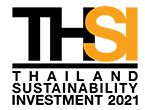Good Corporate Governance

Energy and Environmental Conservation Policy
1. General Requirement
1.1 Purpose
Bangkok Life Assurance Public Company Limited (the Company) recognizes the importance of efficient resource and energy use, as well as waste reduction, and is committed to these principles. This commitment aims to mitigate the impacts of climate change by reducing greenhouse gas emissions from the Company’s operations while ensuring comprehensive and sustainable management in compliance with applicable laws and international standards. Energy and environmental conservation, along with fostering a culture of environmental stewardship, are responsibilities shared by all executives and employees.
1.2 Scope
This policy applies to Bangkok Life Assurance Public Company Limited and its subsidiaries, both domestic and international, if any. International subsidiaries must seek approval to adopt this policy, or use it as a guideline for preparing an equivalent policy.
1.3 Effective Date
This policy shall be effective from the date of approval by the Board of Directors.
1.4 Review Frequency and Revision
This policy must be reviewed annually, or when a significant change arises.
Any revisions, review, or renewal of this policy must be considered by the Corporate Governance and Sustainability Committee before being submitted to the Board of Directors for approval.
1.5 Responsible Function
The Accounting and Finance Division (Sustainability Management Section and Facility Management Section) is the responsible function of this policy.
2. Main Requirement
2.1 Definition
| 2.1.1 | “The Company” means Bangkok Life Assurance Public Company Limited. | |
| 2.1.2 | “Subsidiary” means companies in which the Company holds shares directly or indirectly of more than 50%. |
2.2 General Principle
This policy is designed to ensure that the Company's operations comply with the established objectives, laws, and regulations. Therefore, it is deemed appropriate to establish this Energy and Environmental Conservation Policy.
2.3 Role, Duty, and Responsibility
| 2.3.1 | The Board of Directors (“BoD”) is responsible for establishing the structure of the Energy and Environmental Conservation Policy. | |
| 2.3.2 | The Corporate Governance and Sustainability Committee (“CGS”) is responsible for establishing the Energy and Environmental Conservation Policy Framework. | |
| 2.3.3 | The Management Committee (“MC”)is responsible for enforcing the Energy and Environmental Conservation Policy. | |
| 2.3.4 | The Sustainability Working Group (“SWG”) is responsible for implementing the Energy and Environmental Conservation Policy. | |
| 2.3.5 | The Internal Energy Audit Working Group is responsible for auditing the energy management of the organization. | |
| 2.3.6 | The Energy Management Working Group is responsible for energy management operations. |
In addition, the policy owner is responsible for ensuring that the relevant divisions and/or departments establishes a procedure to comply with the policy, and the procedure owner is responsible for developing a manual that is in compliance with the procedure.
2.4 Requirement
| 2.4.1 | Integrating energy conservation, greenhouse gas reduction, waste management, and environmental impact reduction into the Company’s business strategies and operational plans. | |
| 2.4.2 | Establishing systematic goals and plans to reduce energy consumption, waste generation, and greenhouse gas emissions. | |
| 2.4.3 | Continuously improving resource efficiency, reducing unnecessary energy consumption, optimizing operational processes, promoting value-based energy use, and supporting energy-efficient technologies for continuous improvement. | |
| 2.4.4 | Providing necessary support, promoting employee development, fostering environmental awareness, and encouraging employee participation in proposing ideas for energy and environmental improvements. | |
| 2.4.5 | Establishing an energy management team to plan and oversee the implementation of energy conservation and environmental initiatives in line with established policies, plans, and goals. | |
| 2.4.6 | Conducting annual reviews, audits, monitoring, and evaluations of energy conservation and environmental performance. All executives and employees are responsible for cooperating in implementing measures to protect the environment and conserve energy within the organization and supporting the use of energy-efficient technologies for continuous improvement. | |
| 2.4.7 | Continuously communicating energy conservation and environmental practices to employees to foster consciousness and awareness, ensuring correct understanding and implementation. |




